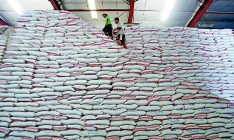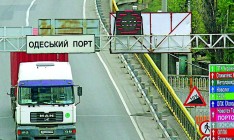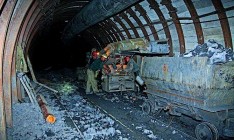Business
CollapseExport of nitrogen fertilizers cut in half

Ukrainian manufacturers of fertilizers are going through the worst of times. Ukraine’s chemical industry has not received such meager revenues from sales of nitrogen fertilizers even during the crisis in 2009. This is evidenced by statistics published by the State Fiscal Service (SSS). During 10 months of this year revenues from the export of nitrogen fertilizers decreased by almost 50%: from US $1 bn (in January — October 2013) to US $554 mn, according to the data. Even during the same period of the crisis in 2009 they were significantly higher — US $687 mn, despite that at that time the cost of fertilizers was lower than the current price. For example, the average price of carbamide, the most massively exported product (compared with other types of nitrogen fertilizers) manufactured by Ukraine’s chemical industry, did not exceed US $252 per ton in 2009. And in January — November 2014 it was US $315 per ton (FOB Black Sea).
Reasons for the collapse
The significant decrease in export earnings is due to the sharp decline in physical export volumes. In January—October 2014 chemical producers could only export 1.9 mn t of nitrogen fertilizers, including 600,000 t of ammonia. Over the same period last year shipments totaled 3.7 mn t (1.3 mn t of which was ammonia).
Neither the State Statistics Service nor the State Fiscal Service provided any detailed information on changes in the export volumes of carbamide and ammonium nitrate this year. It is only known that in January—October 2014 the production of carbamide dropped compared to the same period last year by nearly 30% to 860,000 t in terms of nutrients, according to SSS. This is approximately 1,380 mn t in bulk. Almost all the volumes of urea (a synonymous name for carbamide) are exported from Ukraine, which suggests that ammonia and urea made up the lion’s share of shipments of fertilizer this year. Ammonium nitrate is mainly manufactured for domestic sales.
Ostchem loses status
The negative growth trend in the industry was due to the down time at the largest exporters of fertilizers — Stirol in Horlivka (the most powerful manufacturer of ammonia and urea in the country) and Azot in Severodonetsk. Both companies are controlled by Ostchem owned by Dmytro Firtash. They were shut down in May at the time of the escalation of hostilities in the eastern part of the country.
The shutdown of those chemical complexes almost turned Ostchem from being the exporter of fertilizers into the supplier for the domestic market, because Azot in Cherkasy and Rivneazot, which are currently operating and belong to Ostchem, are mostly focused on supplies of ammonium nitrate to the domestic market. At present, the company is capable of exporting a maximum of 65,000 t of carbamide per month (approximately one sixth of the total capacity of the industry), and approximately 50,000 t of calcium ammonium nitrate, which is produced by no other plants in Ukraine. The fact is that it is logistically inefficient for those plants to export ammonia.
Other chemical companies facing economic hardships
The remaining two enterprises exporting mineral fertilizers — the state-owned Odesa Portside Plant (OPP) and Privat Group’s DniproAzot — are hardly managing to take hold of the external markets and fight for favorable price terms for supplies. For example, the OPP has been operating only at half its capacity for almost a year due to problems with the supply of natural gas.
A representative of the enterprise says it has become more difficult for the plant to find a market for its ammonia. For this reason, even at the peak of the cost of fertilizers in September—October 2014 (prices exceeded US $600/t) the OPP was not loading the second ammonia plant (of the two available) and production at the first unit was processed into carbamide.
DniproAzot, which receives natural gas at the lowest price compared to all other companies in the industry, also cannot boast large volumes of shipments. The company operates only one unit for carbamide and all produced ammonia is processed into fertilizer.
From exporters to re-exporters
The downtime at chemical plants, consistently high prices for natural gas (for some chemical companies they are more than UAH 5,000 per 1,000 cubic m) and the aggressive behavior of Chinese and Iranian suppliers of carbamide on the world market have led to Ukrainian manufacturers losing such a large market of carbamide as India. Even earlier the chemical companies lost the American market during the crisis on the ammonia market.
Such changes forced NF Trading, also owned by Firtash, to resort to the sale of Chinese carbamide to EU markets in order to not lose its position as a worldwide exporter of fertilizers. The fact that the company intended to sell the product manufactured by its major competitors was announced in late October 2014. This was major news on the market and evidence of serious and potentially irreversible changes in the industry.
Forecasts
The lack of integration between Ukrainian chemical plants, as well as the significant decline in the production and supply of products, do not promise them anything good in the future if the remaining operational companies have no access to cheaper natural gas, believes Director of Infoindustriya Dmytro Hordiychuk. «The industry is going through hard times. If the government does not support it, chemical plants will face a further decrease in their presence on export markets, for which it is becoming more difficult for them to fight with every passing year,» said the expert.
In addition, Ukraine is losing a major supplier of currency. While in 2008 at the peak of export activity manufacturers of nitrogen fertilizers provided 3% of the total foreign exchange earnings in the country, in 2014 this indictor slid to 1.4%.






 of the agreement of syndication with Financial Times Limited are strictly prohibited. Use of materials which refers to France-Presse, Reuters, Interfax-Ukraine, Ukrainian News, UNIAN agencies is strictly prohibited. Materials marked
of the agreement of syndication with Financial Times Limited are strictly prohibited. Use of materials which refers to France-Presse, Reuters, Interfax-Ukraine, Ukrainian News, UNIAN agencies is strictly prohibited. Materials marked  are published as advertisements.
are published as advertisements.